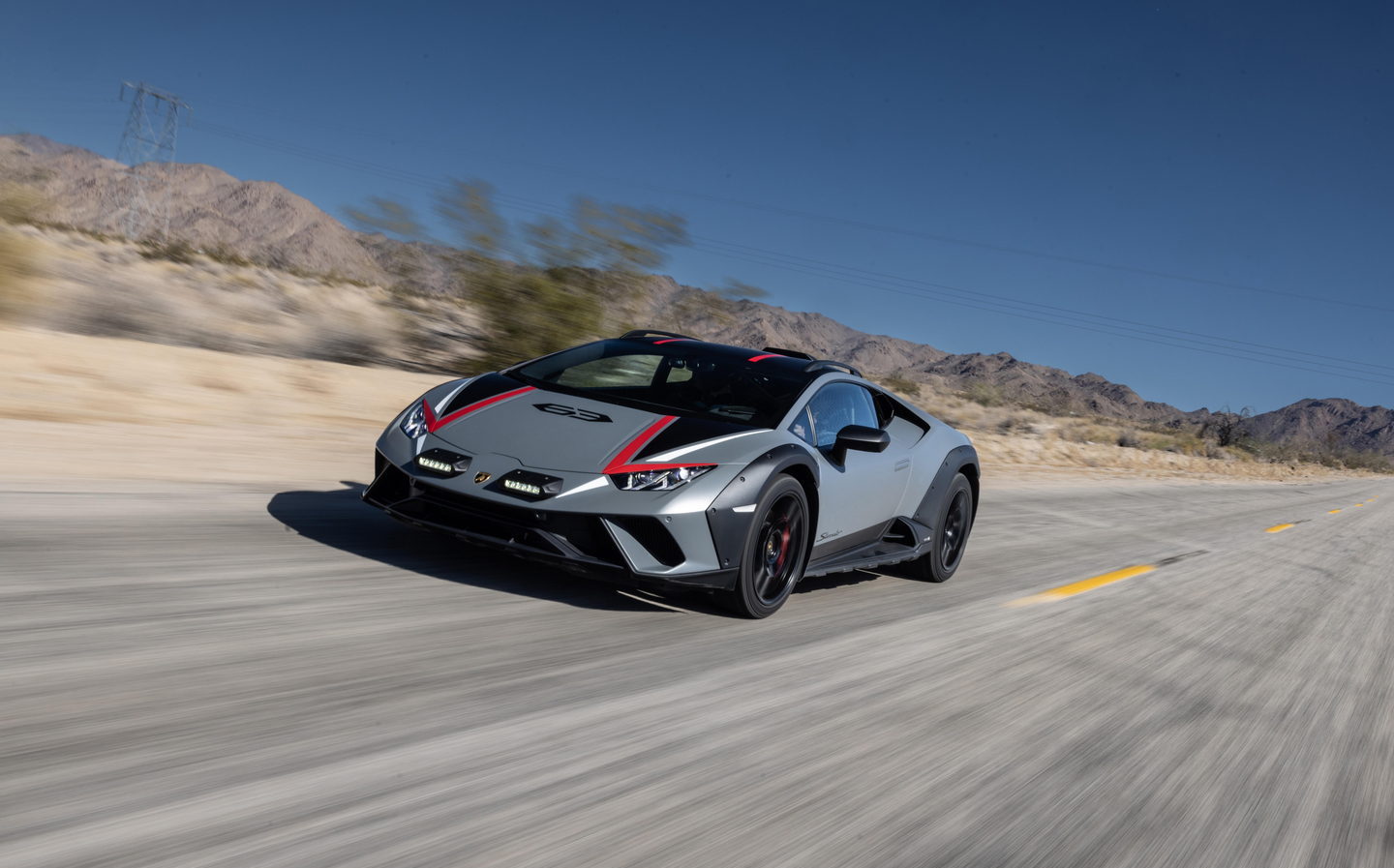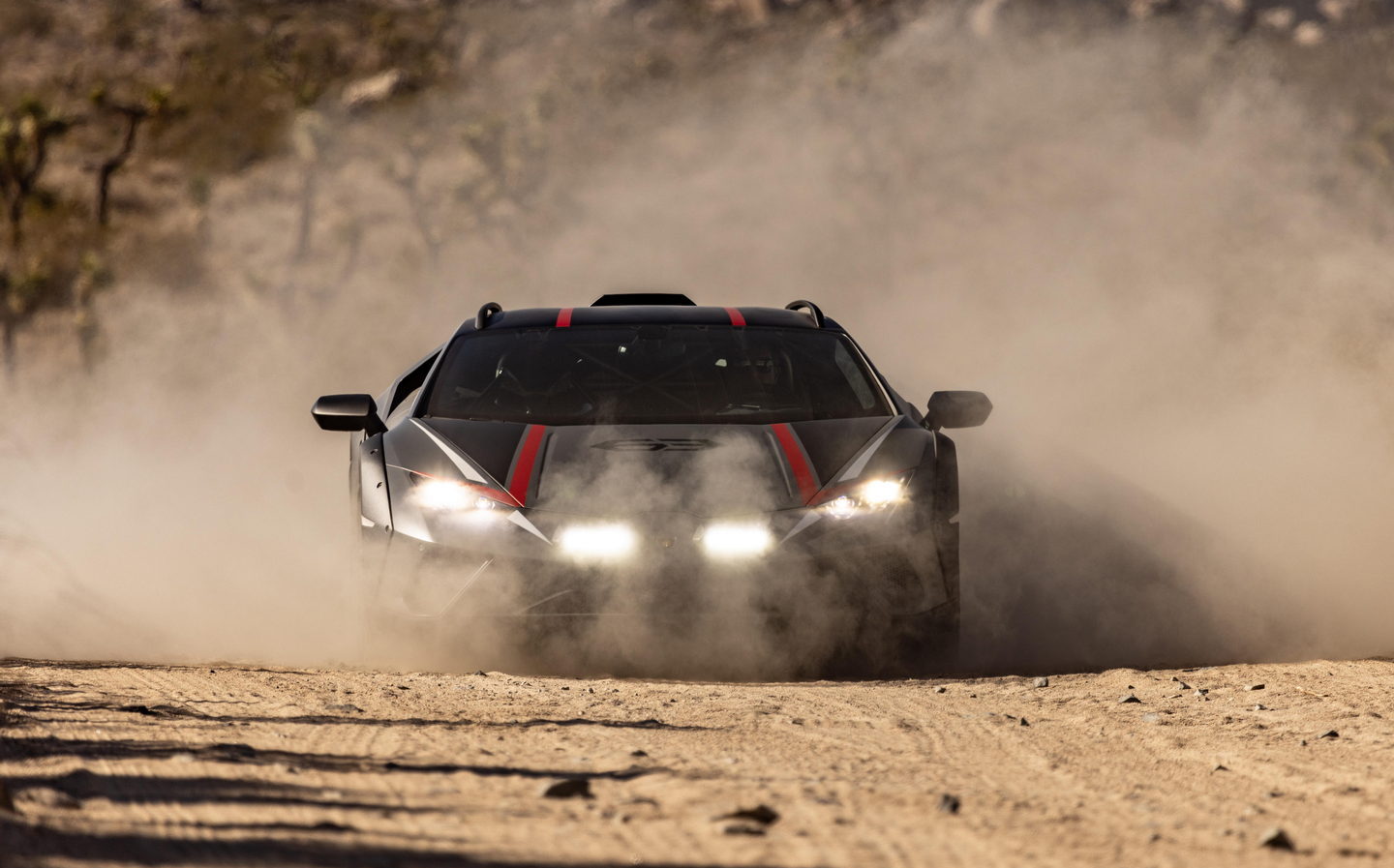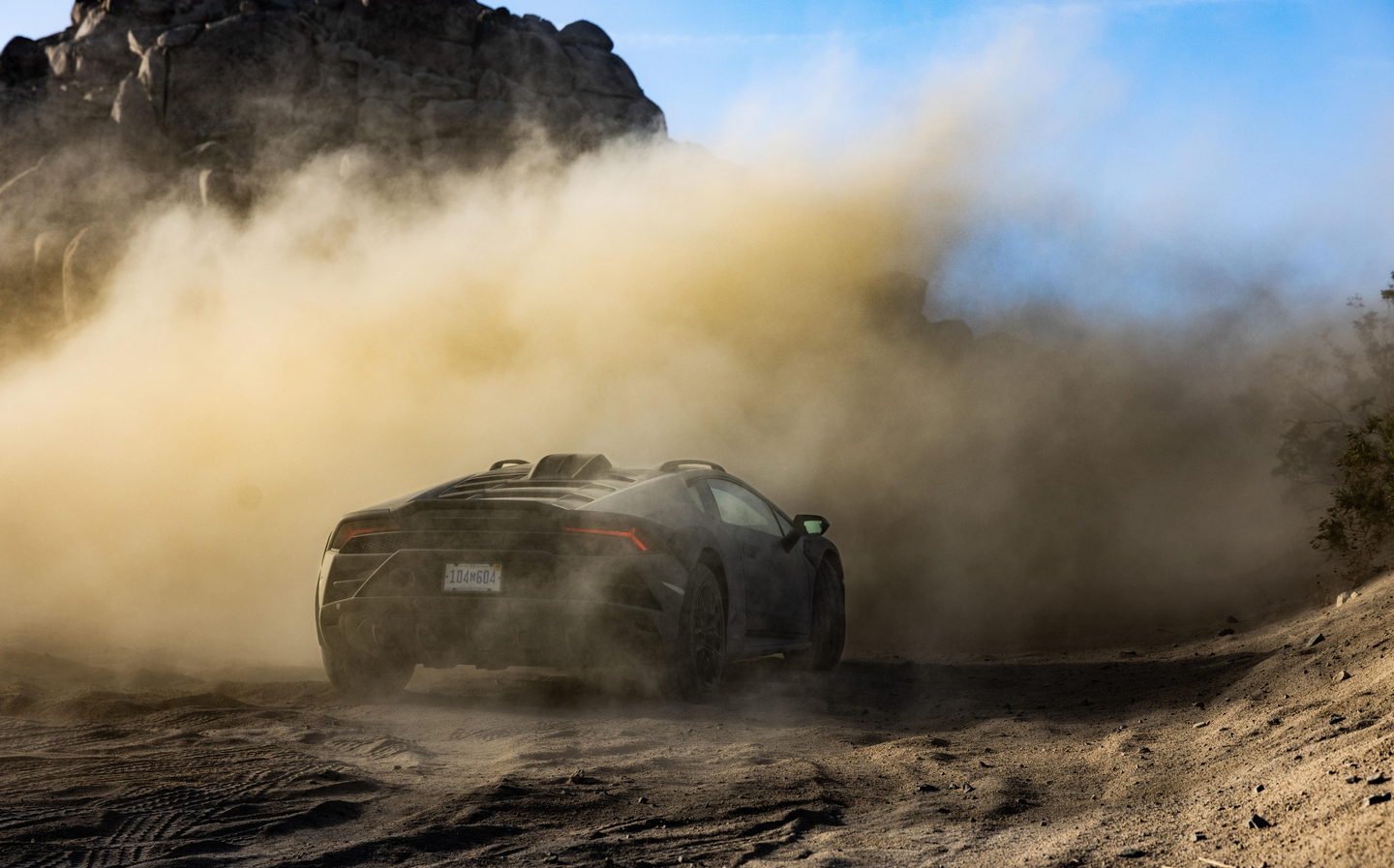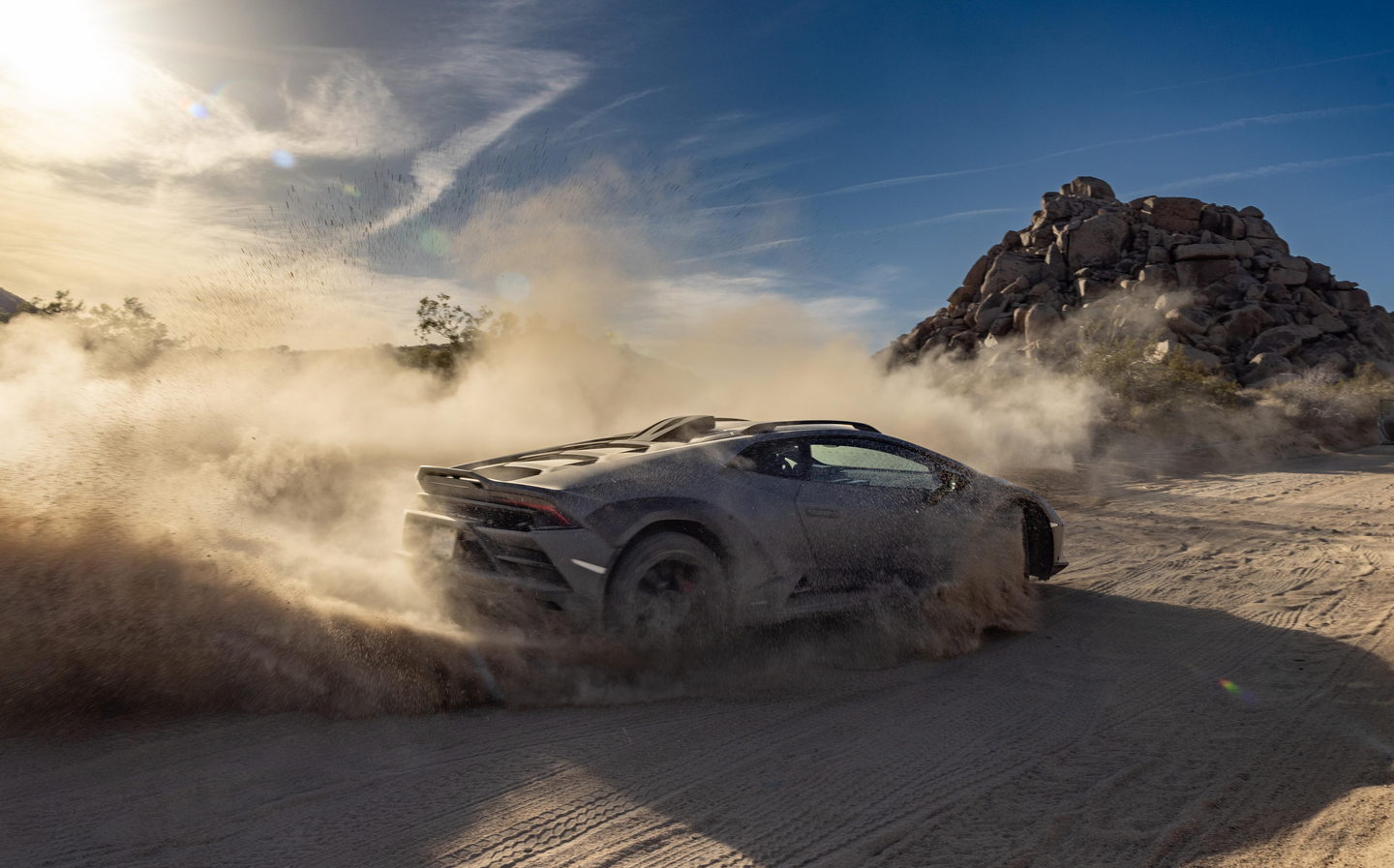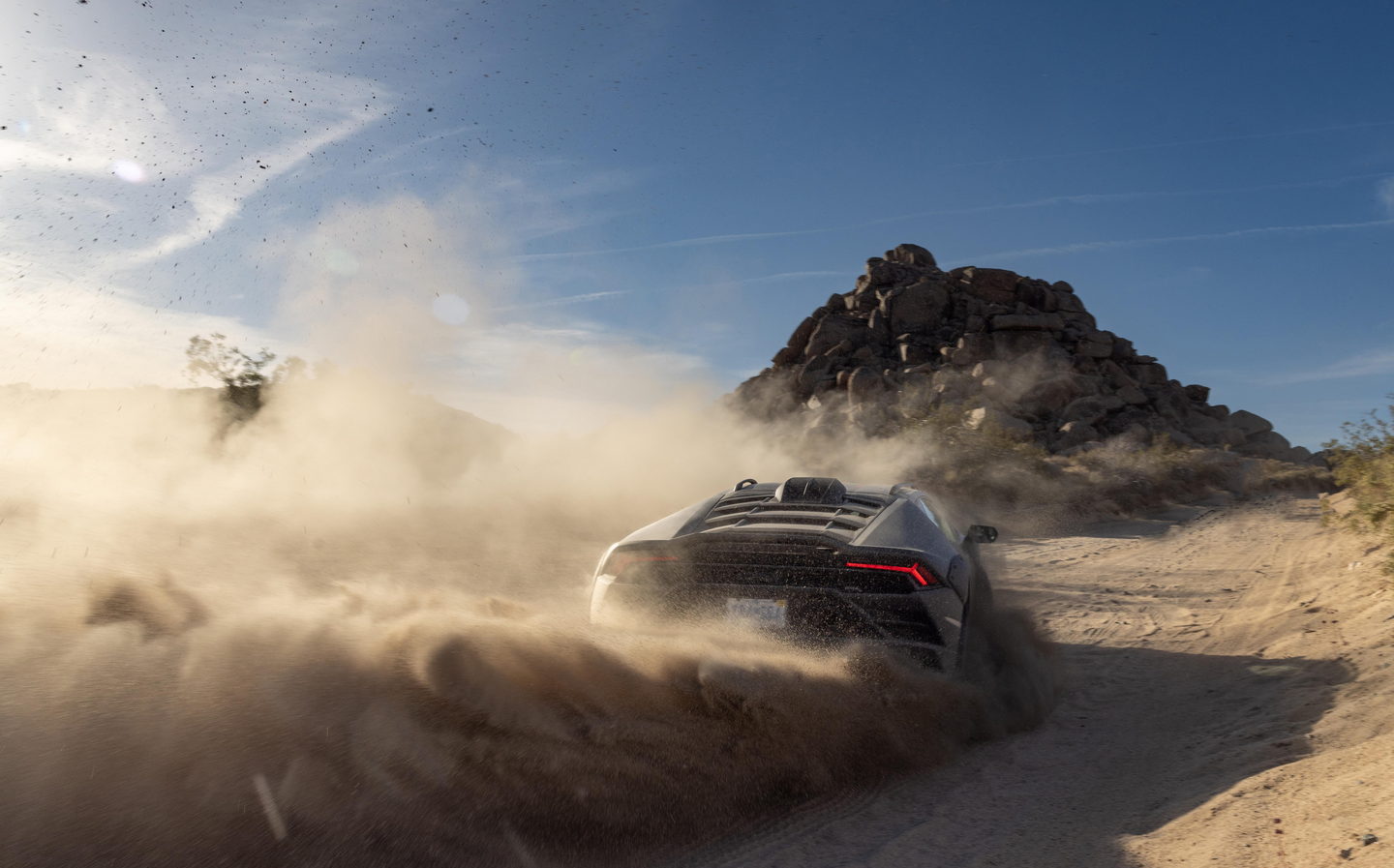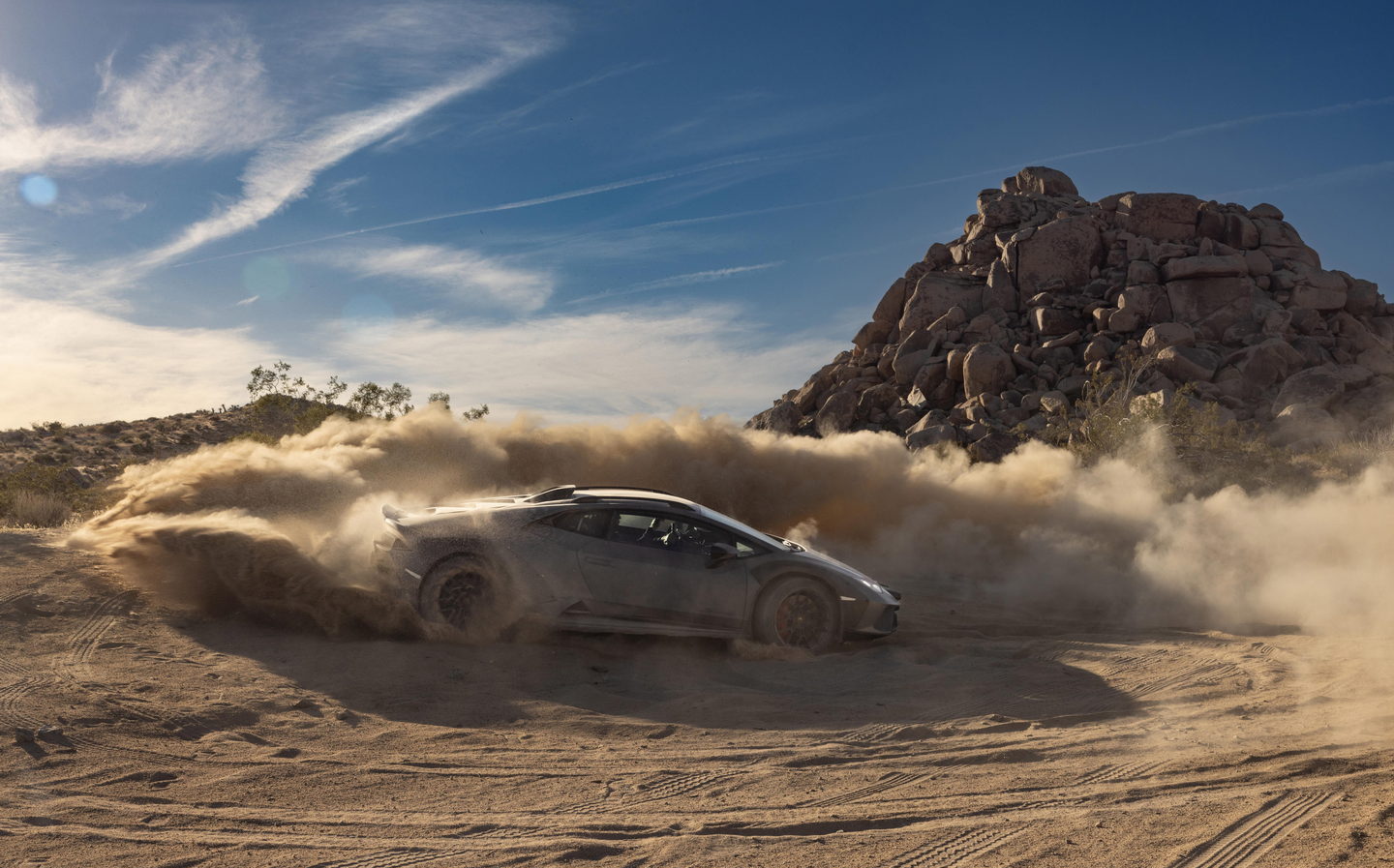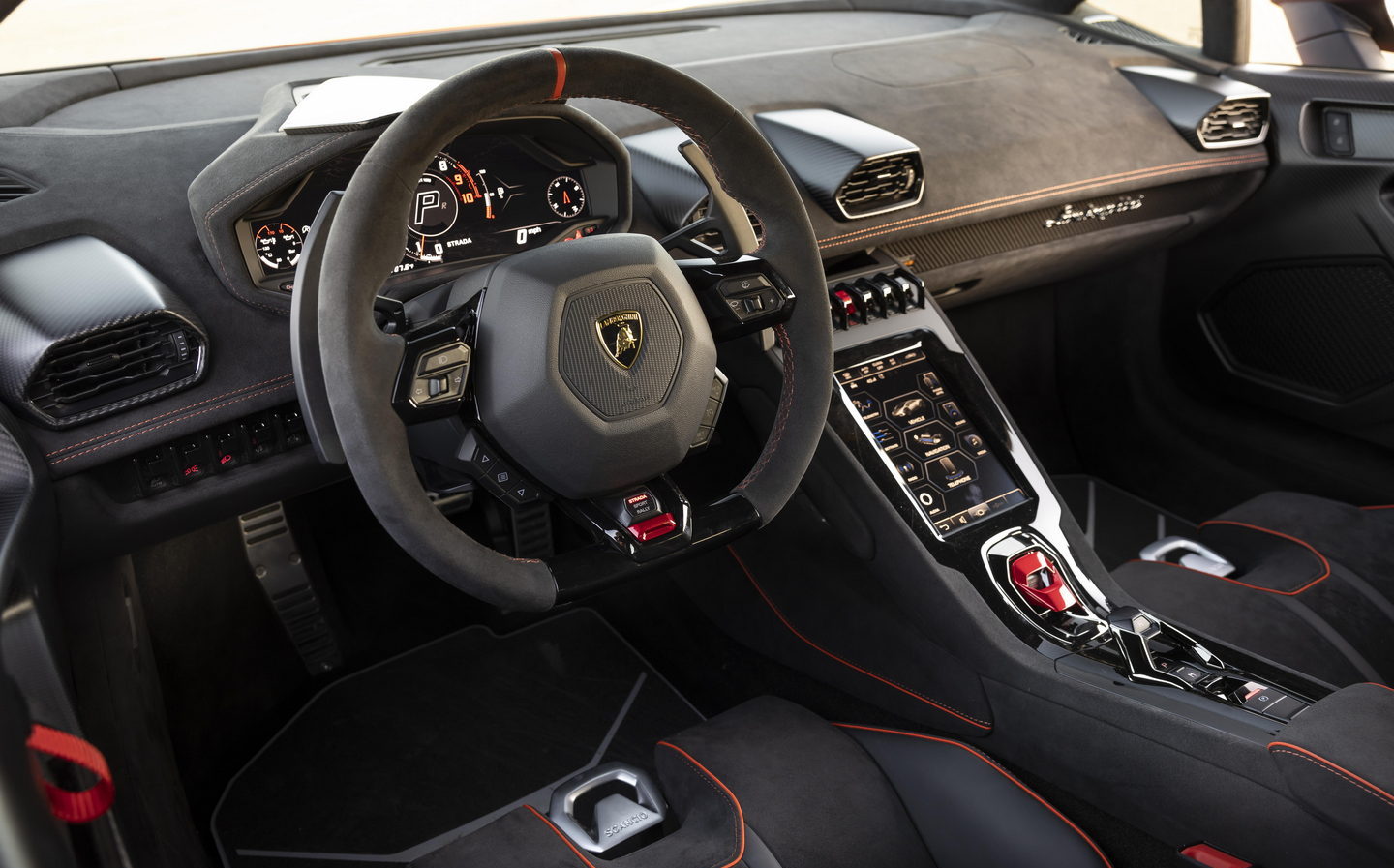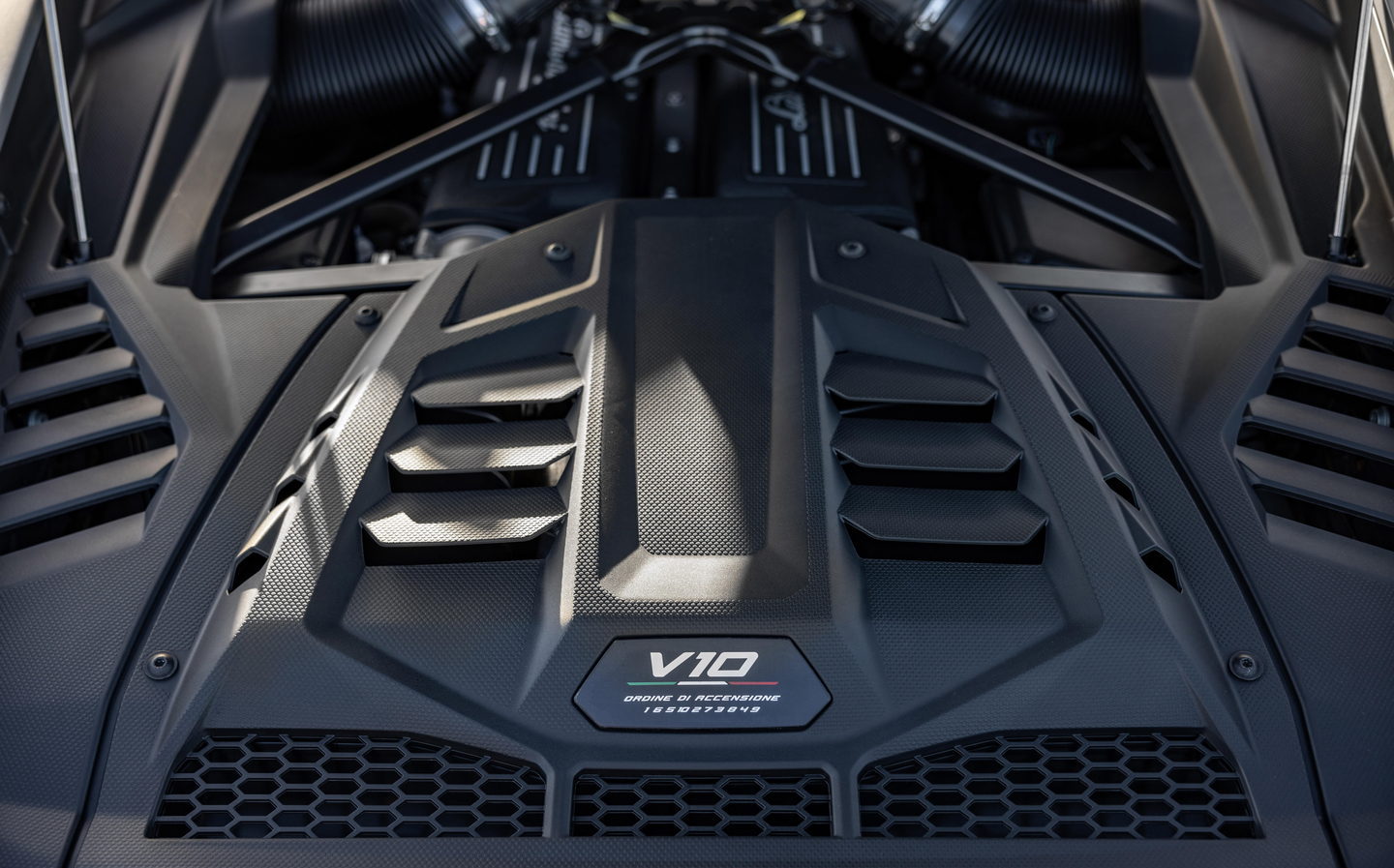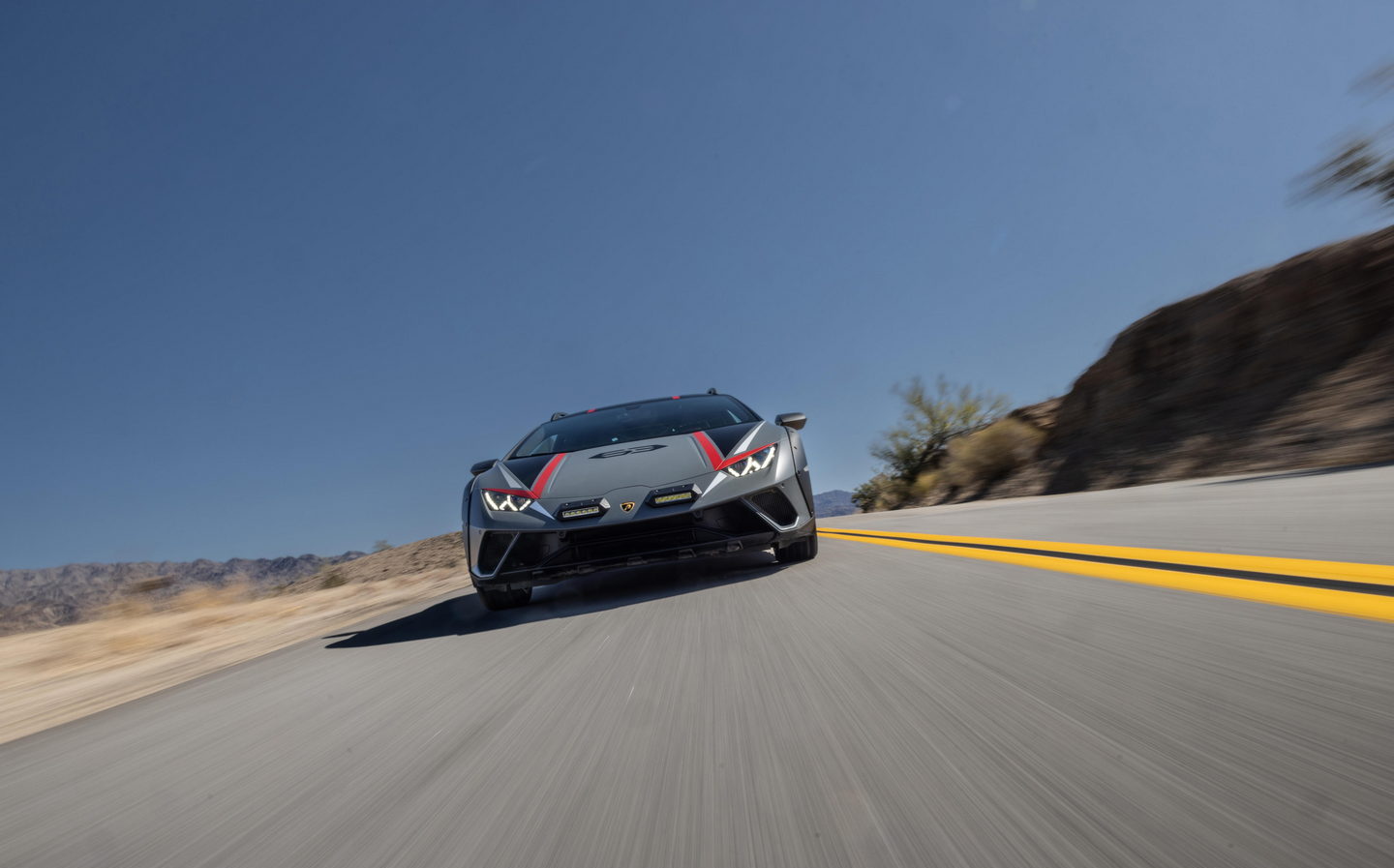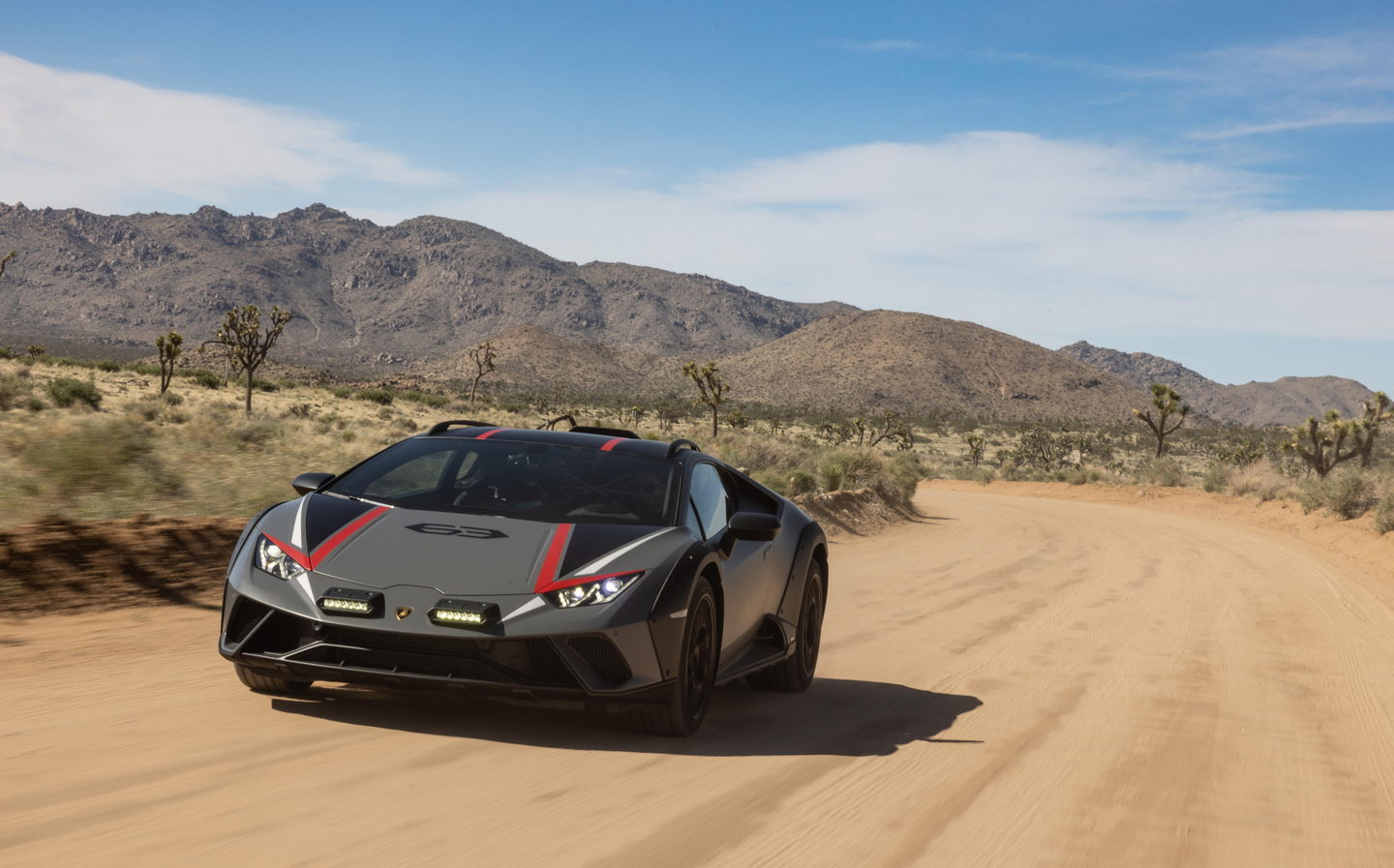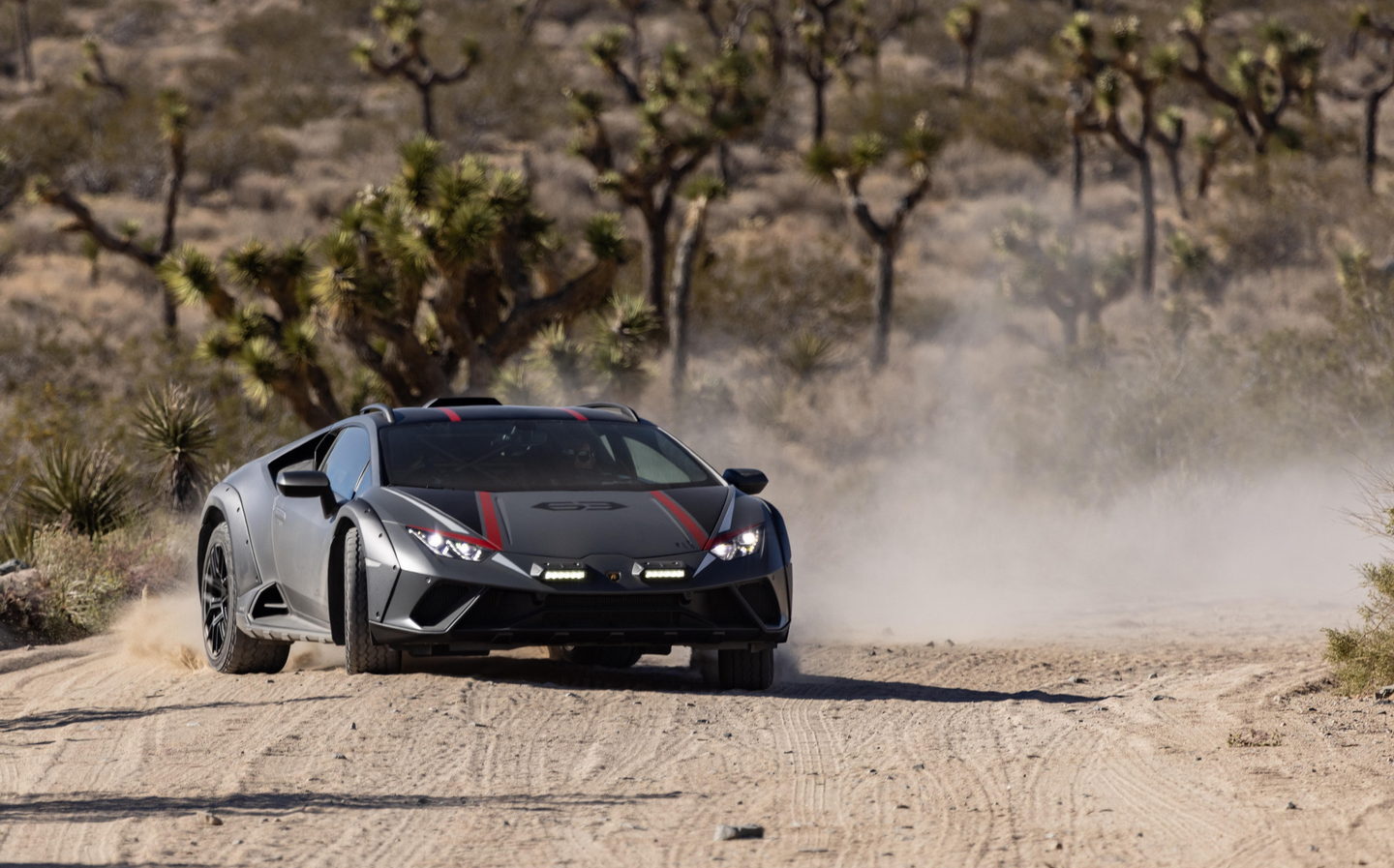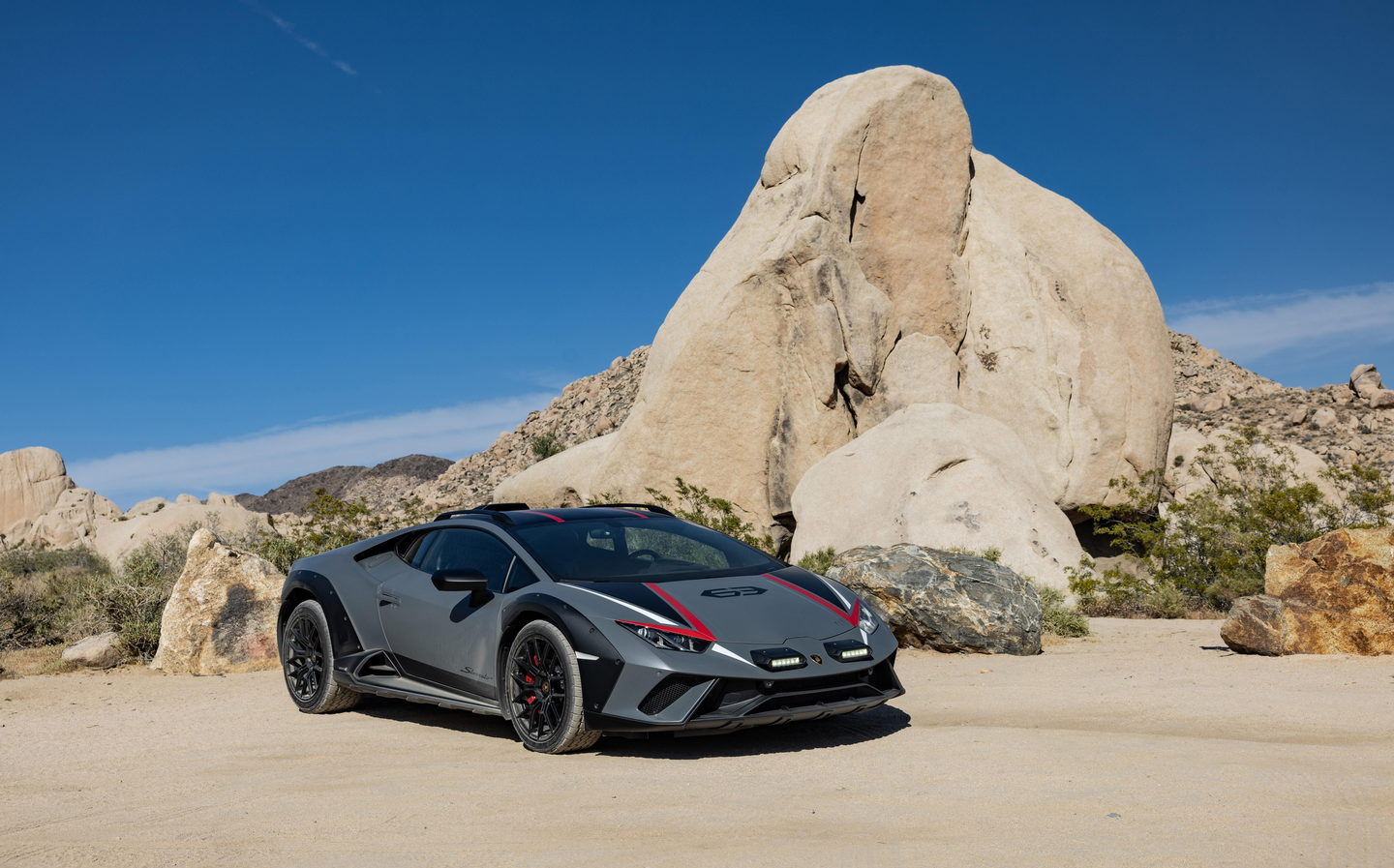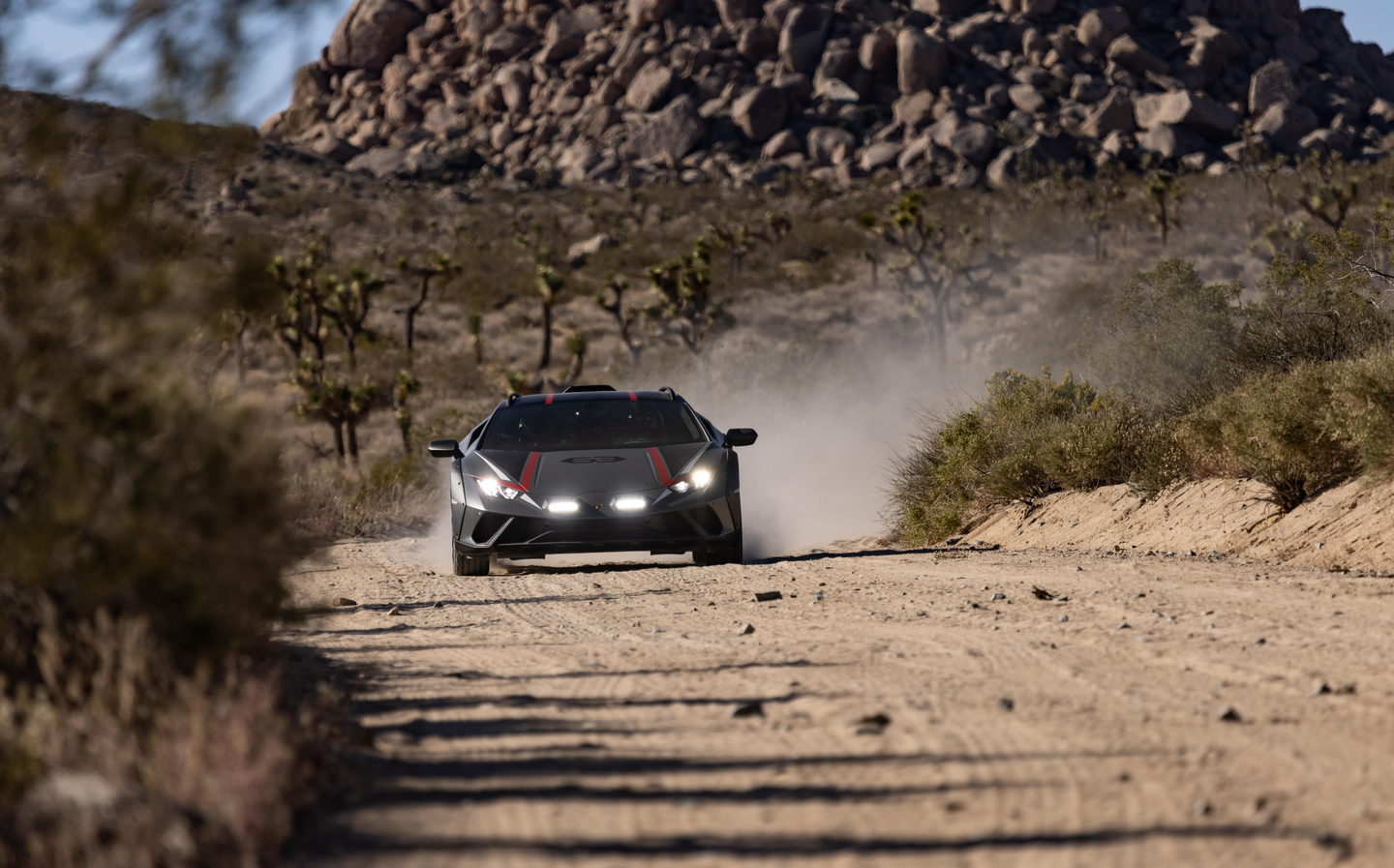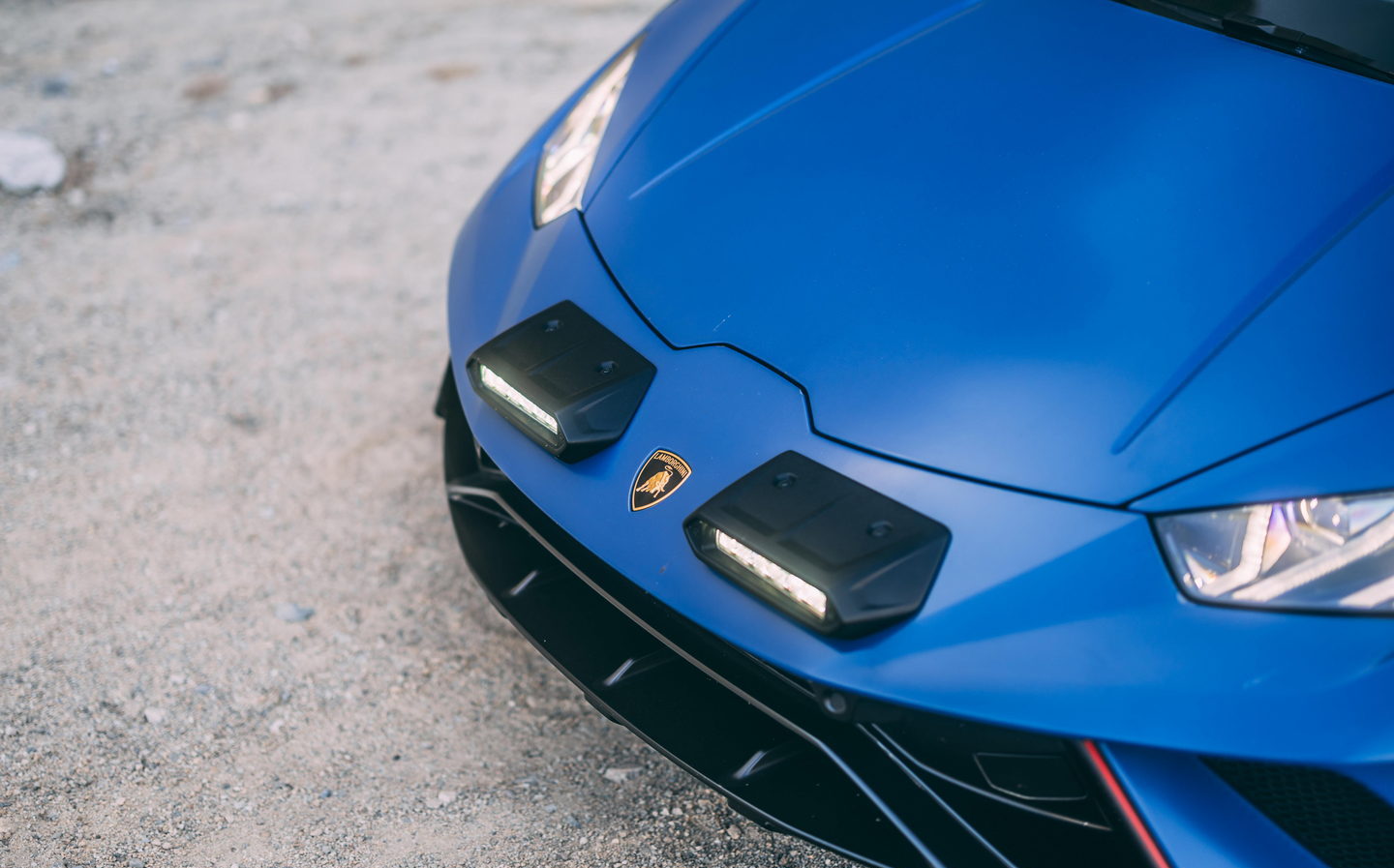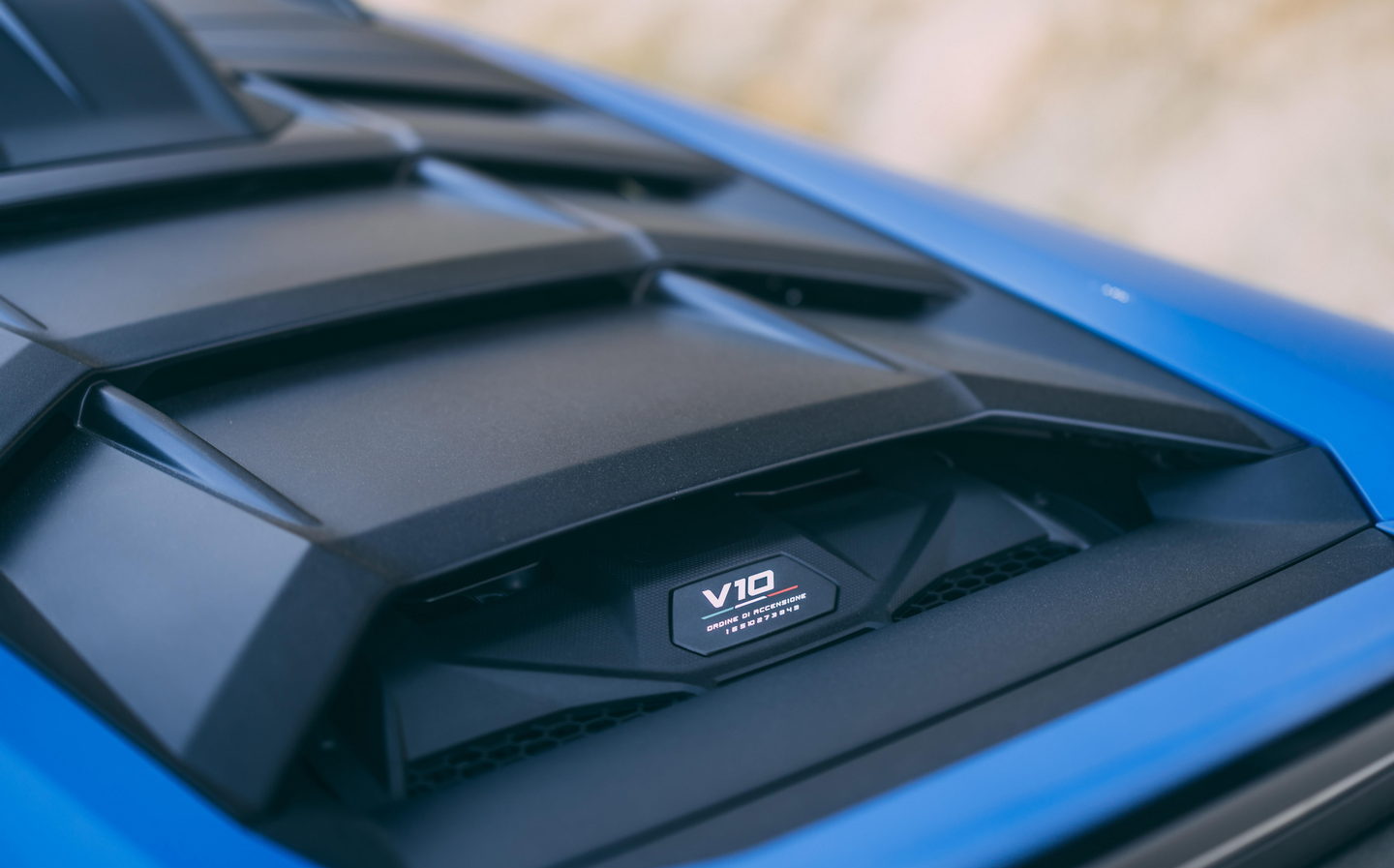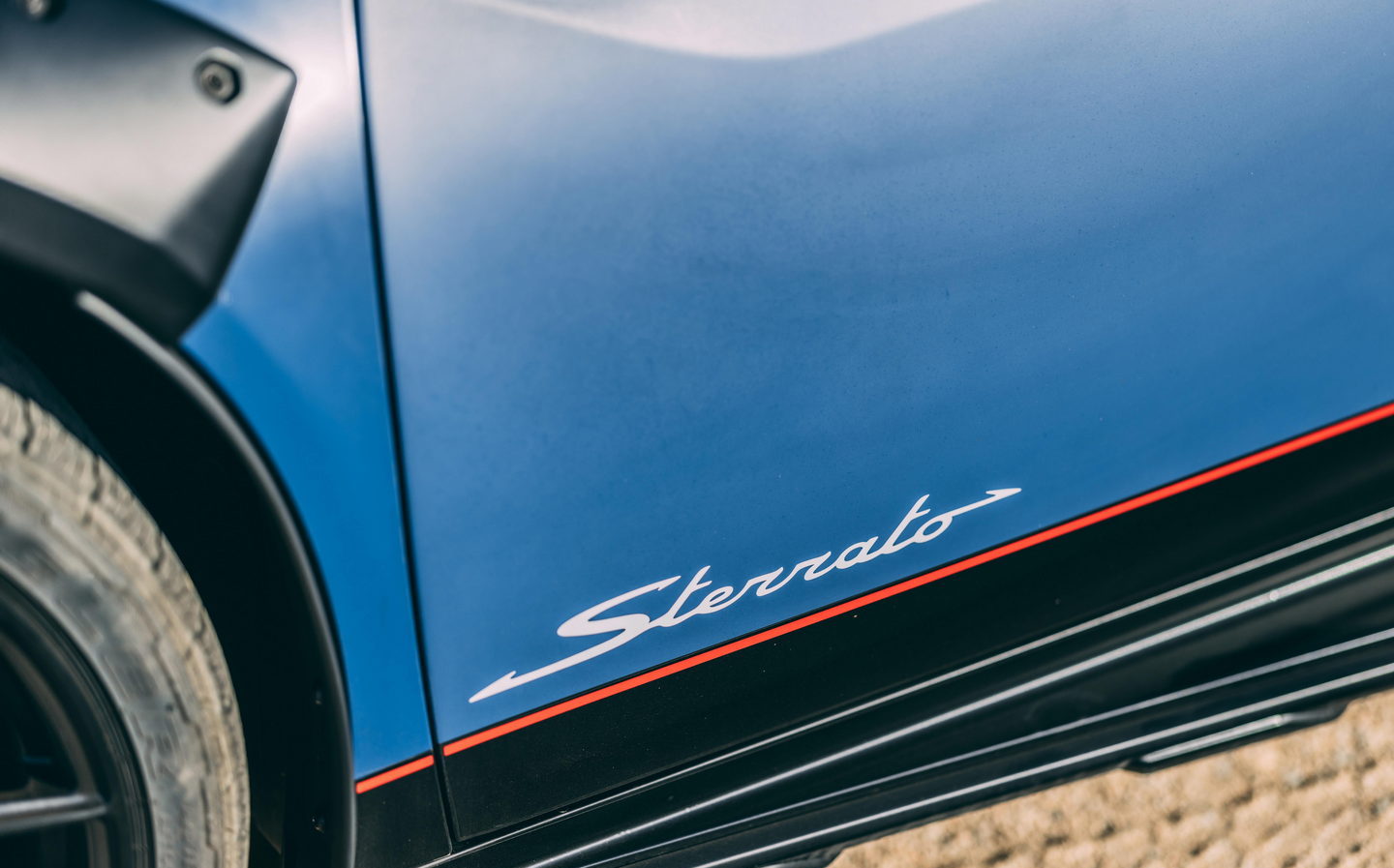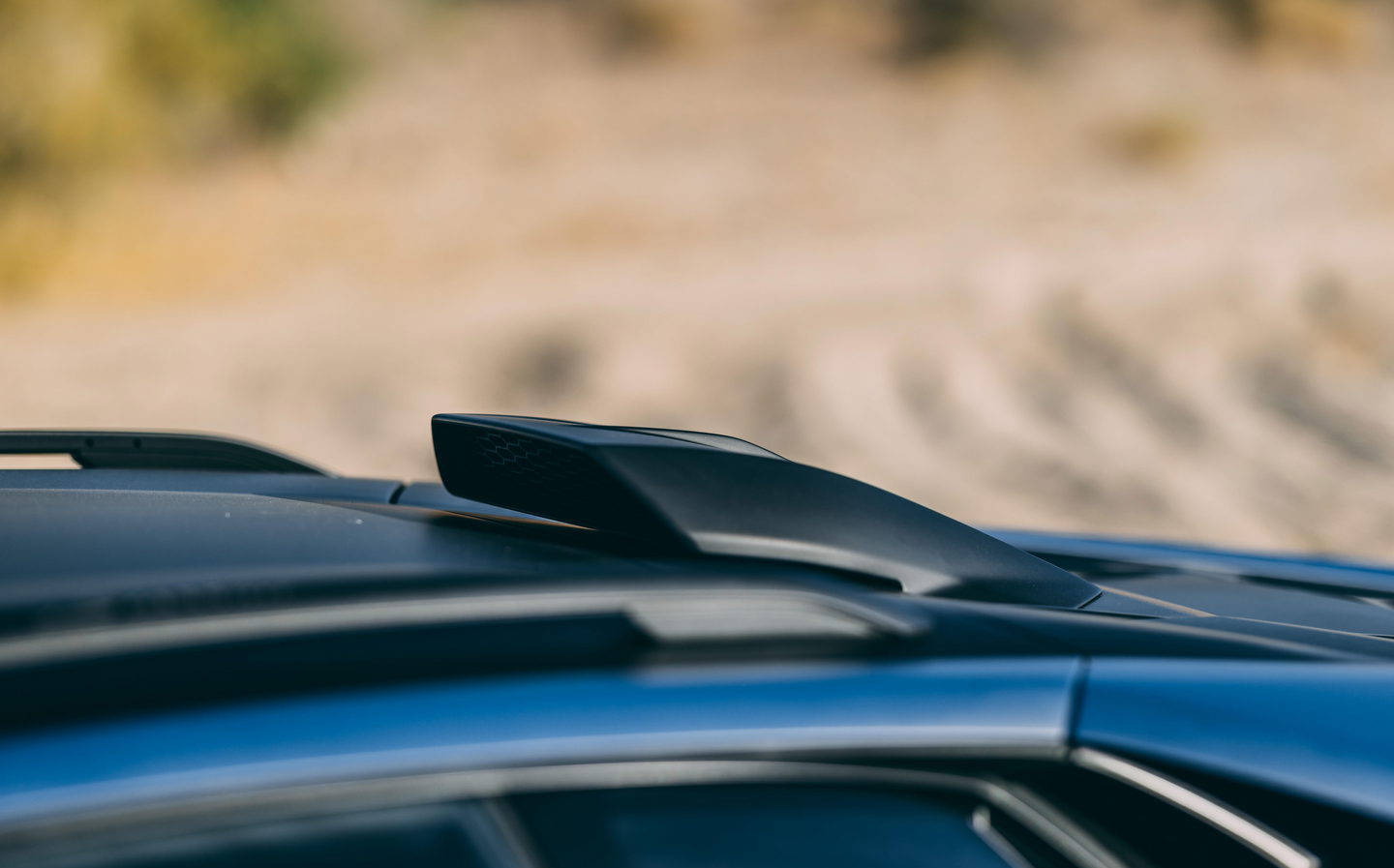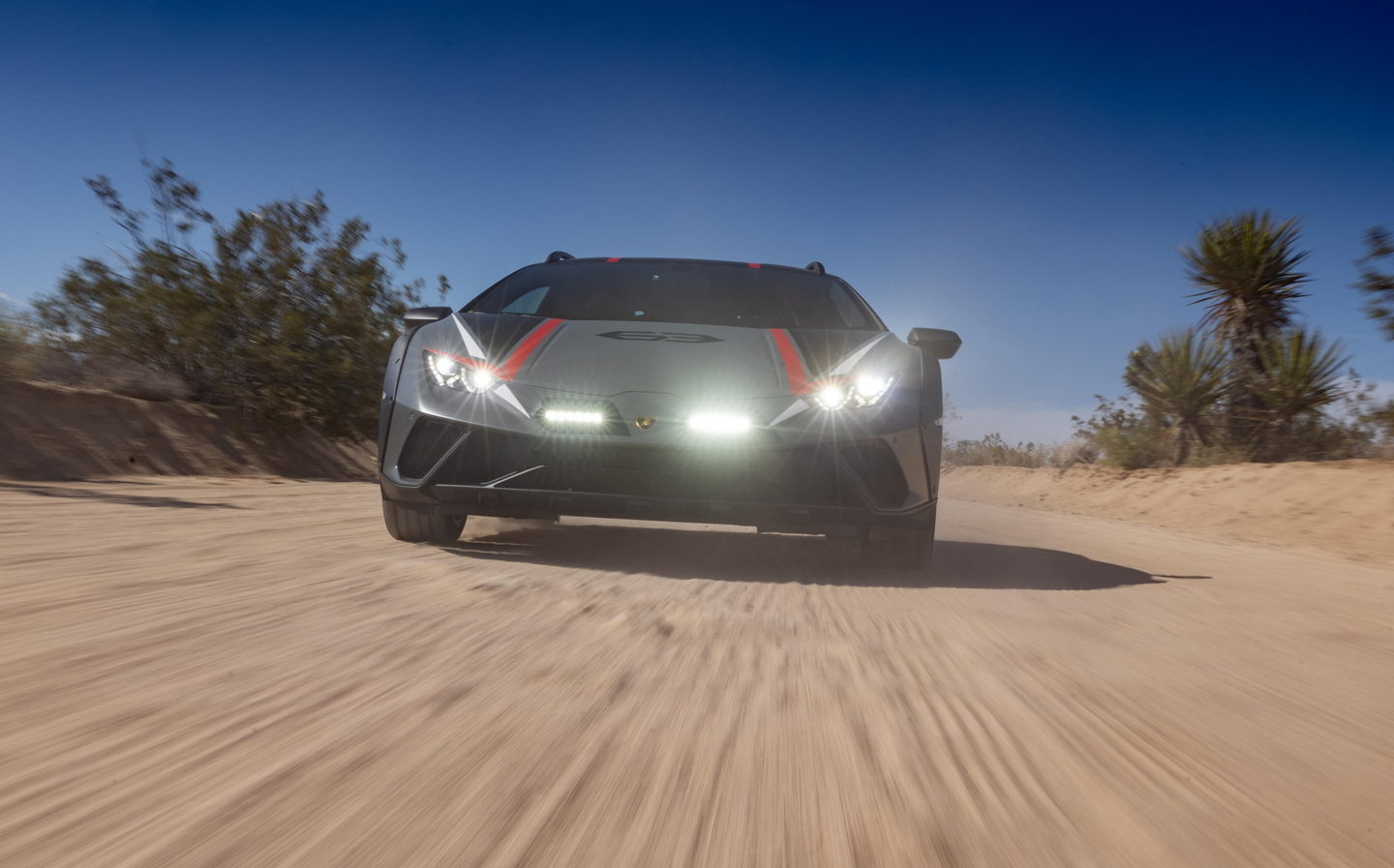Lamborghini Huracan Sterrato 2023 review: Let's off-road... in a £230,000 supercar
You'd have thought Lambo would fit bull bars
Every car company has its niche, intended or earned. Dacias are cheap, BMWs are great to drive (mostly) and Rolls-Royces are ostentatious… sorry, luxurious. Land Rovers these days are lovely to sit in, which is good because they have a reputation for being broken. Toyotas, meanwhile, never break. And Lamborghini? Well, Lamborghini exists to serve the world’s most childish grown-ups with the sort of cars you imagine were first drawn in crayon, then hung on a fridge door.
Okay, that’s doing Lamborghini’s design chief, Mitja Borkert, a disservice. He’s a talented designer who has created some fantastic-looking cars in his time — including the new Countach — but the point is that Lamborghinis are mad in the best possible way.
Striking, spectacular and sometimes slightly stupid, they’re the embodiment of the whole supercar genre. You can’t justify them with facts or figures, and in this modern world, you have to accept they will be seen as the antichrist by some, yet we love them nonetheless.
Epoch-defining supercar
If Lamborghini is the definitive supercar maker, then perhaps the Huracan is the supercar that has defined the past decade. Bold yet beautiful, brash yet brilliant, it has provided Lamborghini and its customers with one of the best and most remarkable mid-engined V10 supercars ever made.
And the modern range is more unhinged than ever. The ‘basic’ Huracan was replaced by the much more modern Huracan Evo, the madcap STO was added for those who wanted their car to look like a Le Mans racer and the Tecnica was launched to make customers feel like driving gods.
But the weirdest and most unbelievable Huracan of them all has come as the coupé enters its twilight years. With production set to end in 2024, the V10 Huracan is being ushered into the old folks’ home kicking and screaming.
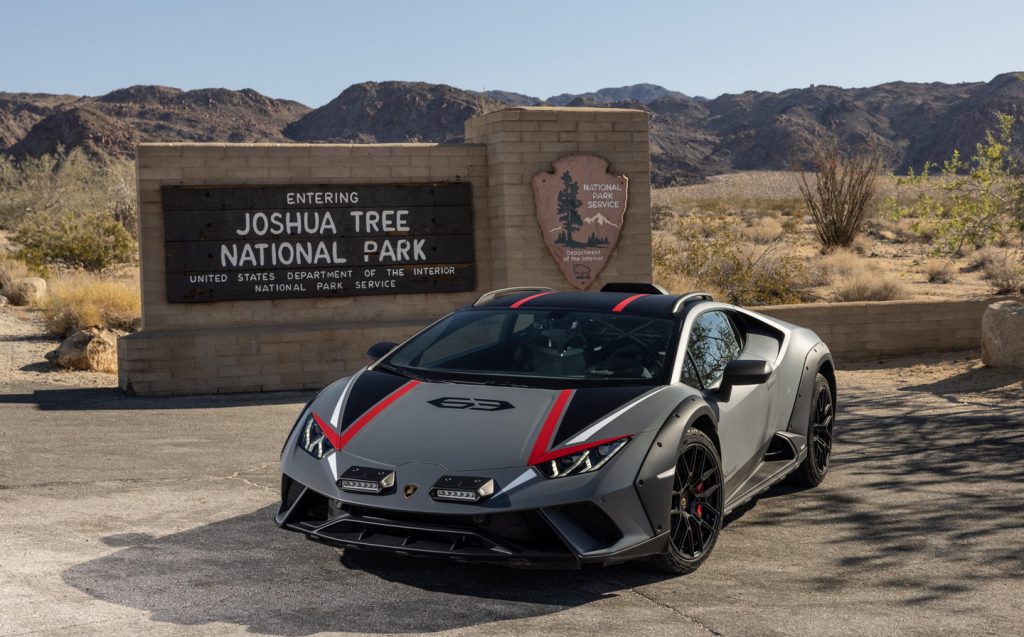
It seems the final blood-curdling howl before the door is bolted and the key casually tossed into the Adriatic is the Huracan Sterrato. Though it looks like it belongs in a post-apocalyptic sci-fi thriller or the sort of video game that’s narrated by Jeremy Clarkson, it’s a car that you or I could go out and buy tomorrow.
Except, of course, we couldn’t. Because the Sterrato costs around £230,000 (before HMRC gets its teeth into you), and only 900 are expected to roll out of Lamborghini’s Sant’Agata factory, a mere handful of customers will be able to slot one into their collection.
So although the Sterrato is designed as an off-road version of the Huracan, capable of tackling farm tracks and Italy’s infamous strada bianca — the white gravel roads that criss-cross the Italian countryside, linking tiny villages and champagne socialists’ holiday homes with civilisation — most will spend their lives in collectors’ private garages.
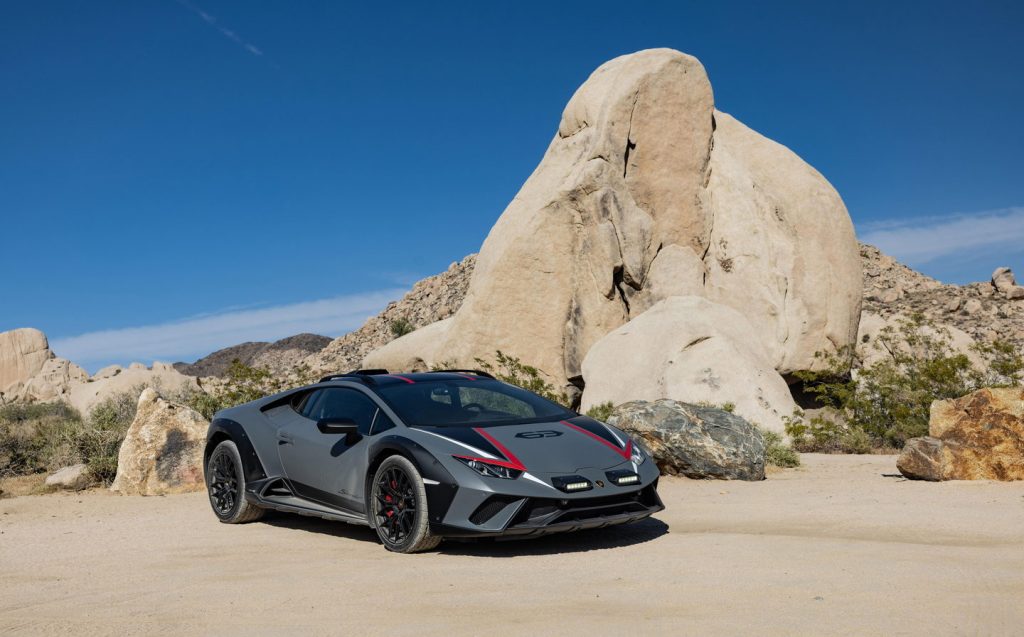
The most unhinged Lambo ever
It has to look the part, however, so the Sterrato appears to have been designed by someone who fills old air raid shelters with tinned food and Googles alien abductions for fun. Plastic body cladding, roof rails and spotlights are all bolted on, and Lamborghini has fitted an air scoop on the roof to a) look cool, and b) harvest clean air, rather than the dust-saturated stuff that could be lurking around the wheel arches. Theoretically, it should allow the Sterrato to crawl through deeper water, too.
But the biggest differentiator is the new suspension system, which gives the car another 44mm of ground clearance compared with a Huracan Evo, emphasised by the chunky Bridgestone all-terrain tyres that come as standard.
But while the exterior has changed dramatically, the interior has not. Sure, the air scoop and associated aero panel across the rear window mean you can see pretty much nothing in the rear-view mirror, but otherwise it’s business as usual. For a Lamborghini, that is.
Perhaps surprisingly for an Italian supercar, the Huracan’s cabin is immaculately built, no matter whether you choose a Sterrato or any other version. The brand may be Italian, but it’s owned by Audi now, and that means all the buttons and switches work properly.
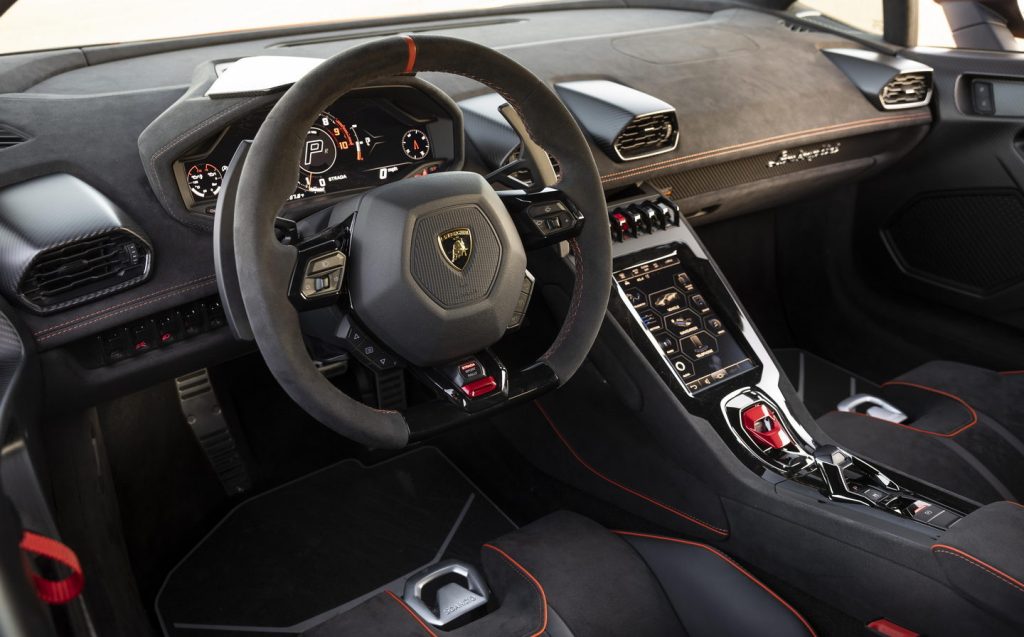
Yet the drama remains because the Italians have done the styling. There are toggle switches everywhere, rather than conventional buttons, and though most of them feel as though they’re fitted the ‘wrong’ way around, they’re robust. We’re particularly fond of Lamborghini’s ignition switches, which live under flip-up cages inspired by the safety catches of fighter jet missile systems. Told you this was the stuff of kids’ dreams.
Obviously, no Huracan is a practical thing. There is quite a bit of space inside, as long as you don’t go for the open-topped Evo Spyder, but storage is an issue. The boot, for example, is tiny and it gets very warm, which means by the time you get home from Waitrose, your Häagen-Dazs will have melted. At least you can fit a roof box to the Huracan for extra storage.
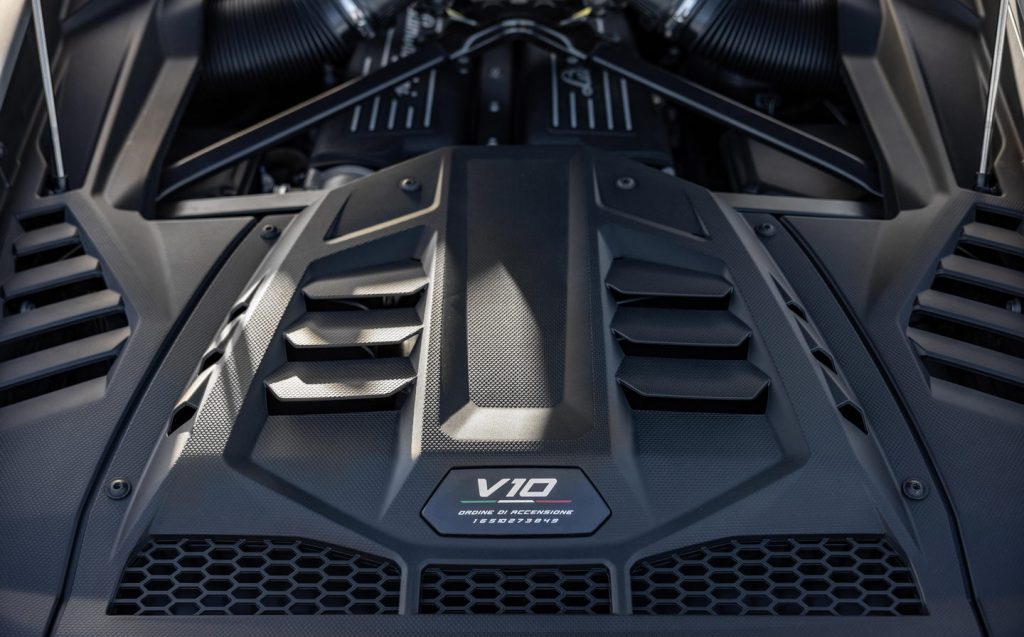
But nobody buys a supercar for its practicality. They exist solely to make their drivers feel good and to bring a smile to the face of every five-year-old, young or old, that passes by. That’s where the Huracan has always excelled, with its dramatic design and, just as importantly, the 10-cylinder symphony that powers it.
It’s the same engine you get in an Audi R8, but don’t let that put you off, because it’s an absolute cracker. Eschewing modern technology such as turbocharging and electrification, it relies solely on bulk and brawn, both of which it has in abundance.
In the case of the Sterrato, the 5.2-litre V10 distributes 601bhp between all four wheels, allowing a 0-62mph time of 3.4 seconds and a top speed of 161mph. That may make it the slowest Huracan you can buy, but it’s still monstrously fast in a straight line.
Off-road tyres transform the experience
And it’ll be monstrously fast no matter what the surface. Yes, the all-terrain tyres will scrabble through gravel like a dog that’s just been ‘busy’, but they work their magic in the end, and they’re remarkably good on the road, too.
As long as the surface is dry, that is. In the wet, the Sterrato is a little more wayward, and the chunky tyres feel like a liability, even if they look cool.
They affect the car’s otherwise glorious steering, too, with the big tread blocks and larger sidewalls wobbling around like little lumps of jelly between their rims and the road. It doesn’t spoil the fun altogether, but the Sterrato certainly feels less precise than any other Huracan.
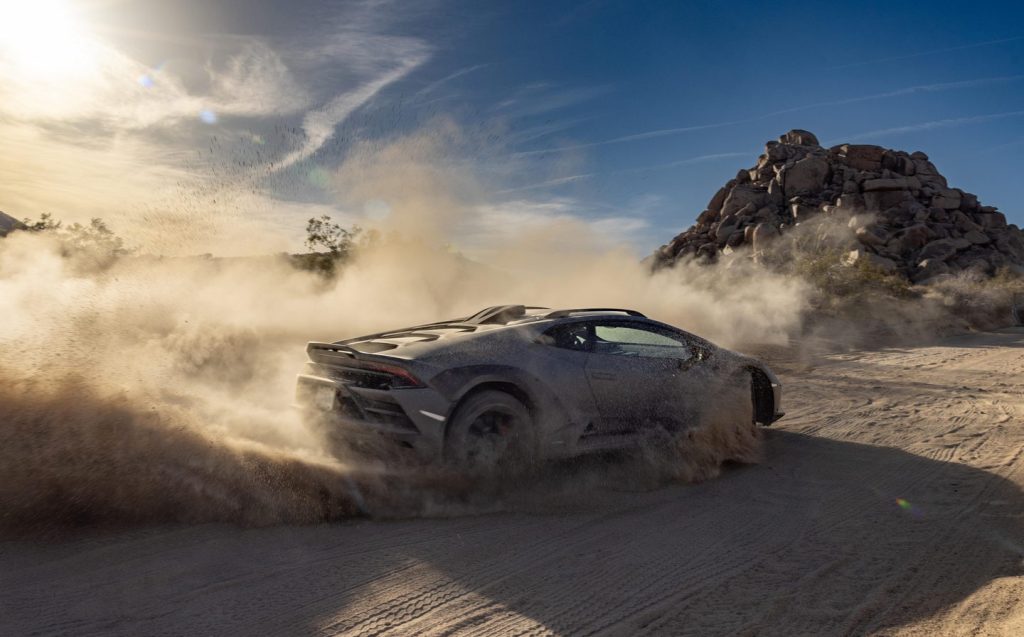
But it makes up for that by being weirdly usable. Take a normal Huracan through a town centre or a gravel car park and you’ll spend the whole time panicking about the proximity of that oh-so-expensive underside to the unyielding surface, but that just doesn’t happen in the Sterrato. It isn’t invincible, and some ramps will scrape that long nose, but the underbody protection affords a little peace of mind.
The raised suspension also makes the car a bit more comfortable, which comes in very handy on roads as scarred as those in the UK. The result is a supercar that’s slightly more accessible and more enjoyable than some other Huracan models, and it doesn’t lose any amount of excitement — it’s just a different type of excitement.
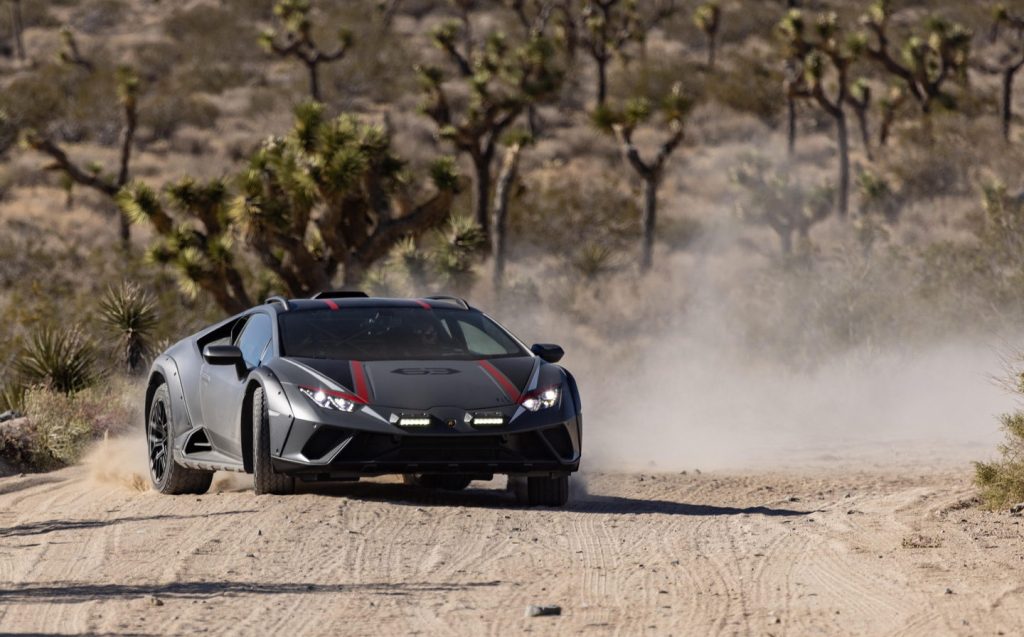
The more conventional Huracans do offer excitement by the bucketload, too. The car may be getting on a bit, but it’s still one of the most supercar-like supercar of all. The design, noise and drama are all provided in spades, and the handling is on point, too.
In many ways, the Sterrato is the most useful Huracan of all, and therefore one of the most compelling. But if you really want a practical Lamborghini, get the Urus SUV.
Huracans are toys, and for my money, the first one out of the box would not be the Sterrato but the Tecnica, which offers the sweetest driving experience. But if Lamborghini’s niche is madness, the Sterrato must be the maddest — and therefore the most Lamborghini-like — of them all.
Related articles
- If you were interested in the new Lamborghini Huracan Sterrato, you might like to check out the hypercar Lamborghini will take to Le Mans to take on Ferrari
- Did you know that last year was Lamborghini’s biggest ever for turnover, topping €2bn for first time?
- You might also be interested in Ferrari’s electric car plans … and the fact that it will continue producing V6, V8 and V12 engines beyond 2030
Latest articles
- Hyundai Ioniq 9 seven-seat SUV gets claimed 385 miles per charge
- Jaguar XJS reinvented as 660bhp ‘Supercat’ by resurrected racing specialists TWR
- Jaguar asks customers to ‘delete ordinary’ in make-or-break brand reinvention
- Extended test: Genesis Electrified GV70 2024 review
- First look at Jaguar’s electric future as four-door grand tourer begins on-road testing
- Abarth 600e 2025 review: Another welcome hot hatch for the electric generation
- Ford Explorer 2024 review: Electric crossover needs to be a monster hit, but is it a Frankenstein’s mismatch of parts?
- Leapmotor C10 2024 review: Chinese SUV needs to compete on more than just price
- Rolls-Royce Cullinan II 2024 review: Makes a statement … but is it the right one?


